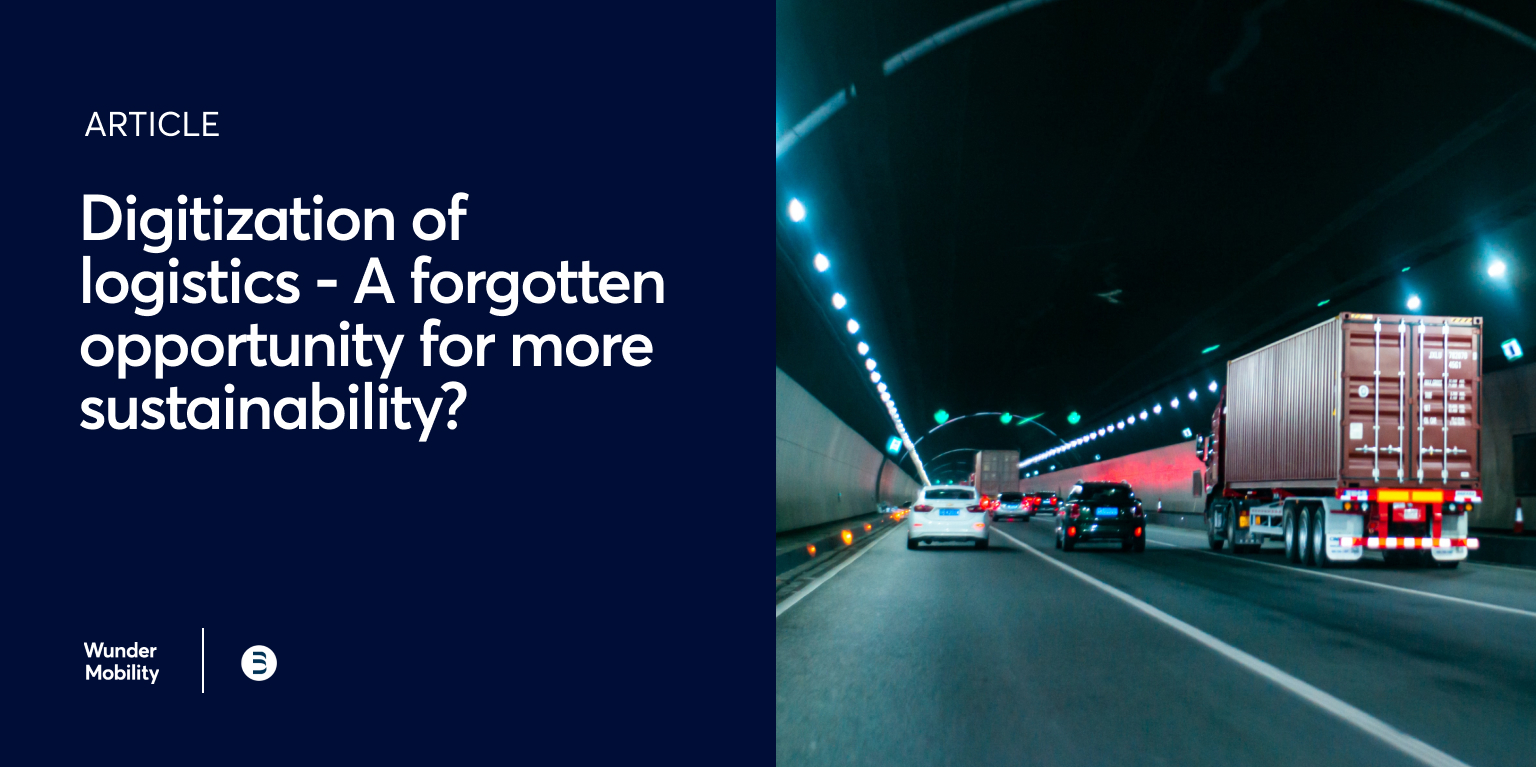
The digitization of logistics – is it a forgotten opportunity for more sustainability? We talked to Trond Stern from cargonexx on this matter.
Countless trucks drive along Germany’s highways, transporting goods from A to B to fill supermarkets, supply production facilities with parts, or transport products to individual households – in Europe, there are approximately two million truck transports per day.
The fact that transport is therefore responsible for around a quarter of CO2 emissions in Germany does not seem surprising. In the logistics sector in particular, there is still a lot of need to make a contribution to climate neutrality. However, this will not bring about changes in the area of propulsion too quickly. This makes it all the more important to increase efficiency by means of digitalization.
Because currently, on average, one in three trucks on German autobahns is empty, i.e., it is not transporting goods from A to B. This is partly due to the fact that large trucks are not able to transport any goods at all. The large trucks do not always receive a new load where they deliver the old load, but instead have to bridge around 120 km between unloading and the new load as an empty journey.
The truck market is one of the largest in the transport industry, worth around 340 billion euros in Europe, and is also highly fragmented: There are more than 300,000 companies in Europe that own trucks and divide the freight transports among themselves. Coordination, i.e., who takes over which trips, is high and unfolds in an enormously large and non-transparent secondary market.
Goal: A digital marketplace
A digital marketplace in which all players and actions are brought into direct exchange with each other could structure this in the future and avoid environmentally harmful empty runs – this is the distant goal of nearly 100 young companies and start-ups like cargonexx in Europe. Essential to this are two data fields:
- Where are the loads for which there are no capacities?
- Where are the free capacities that have no loads?
Collecting and coordinating this data is what all these companies are working on, but there is little exchange on a joint project.
Political incentives and funding could counteract this. This is also the idea behind an initiative of the German government: mFund is intended to promote such data exchange and give young companies access to data other than their own. This involves providing financial support to projects that, in return, share their data via a platform and can, in turn, receive data from others via this platform. The idea is the right one to accelerate digitization and reduce hurdles caused by information gaps, but in practice the initiative is often criticized: authoritative information on toll data or, for example, weather data, which play an essential role in optimizing truck journeys, is not accessible here.
Digital logistics must find its political space
So if the economy is teeming with offers to make the logistics industry more sustainable and efficient with an improved digital solution, then politics must also do its part. However, while political decisions are currently mostly focused on “hard” regulation, in the future they should see the potential of increasing efficiency through digitization. For example, it would already help to provide political support for digitization offerings in the logistics industry – independent of providers – in order to ensure a rapid ramp-up here. It will be the task of the new federal government to give the field more space. Although it is such a large market, the focus is currently more on inner-city logistics and car traffic. Changing this and directing political attention more strongly to the potential of the freight sector will also be the task of those responsible for public policy. Only with political support and funding, and improved data exchange, can the development of such a digital logistics marketplace be implemented. And only in this way can one of the largest transport markets in Europe be further developed into a sustainable and innovatively designed market.